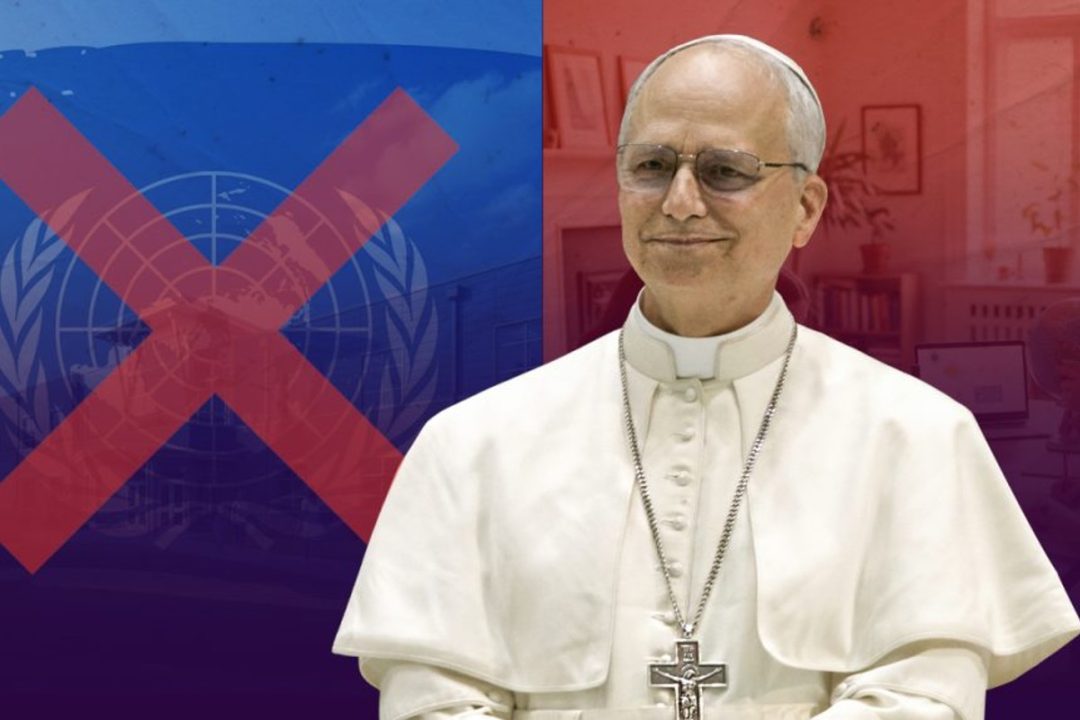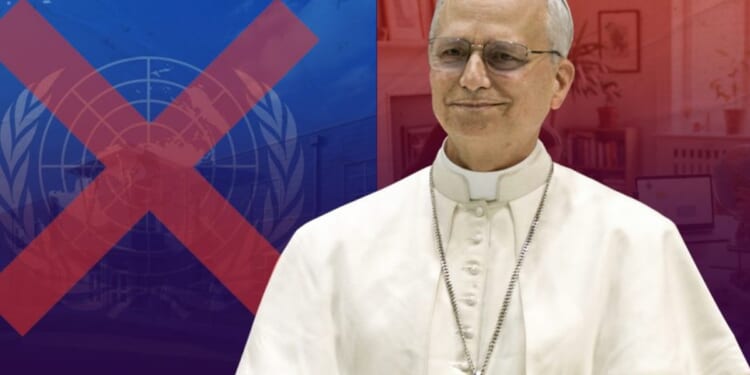
In sharp contrast with the United Nations, Pope Leo XIV just reiterated traditional Catholic teaching on education, arguing that the family is primarily responsible for educating children — not the state or even the church. Other institutions such as Catholic schools can and should help, the pontiff said, but parents can never be replaced.
The pope’s views on education, released on October 28, came in the form of an “Apostolic Letter” titled “Disegnare Nuove Mappe di Speranza,” or “Drawing New Maps of Hope” in English. The document features papal commentary on a wide range of issues connected to education broadly and Catholic schools in particular.
On the issue of who is in charge, the pope left no room for debate. “The family continues to be the first place of education,” he wrote. “Catholic schools collaborate with parents, not replace them, because ‘the duty of education, especially religious education, is incumbent upon them before any other person’.”
Of course, this is not a new position. Historically, the Roman Church has always taught that parents are ultimately responsible for the education of their children. Even the Second Vatican Council reaffirmed the principle. And it is the view taught in Scripture: God placed the primary responsibility for educating and discipling the next generation on parents.
But the recent papal comments come as the UN gets increasingly bold in claiming that government — not family — is really the “primary duty bearer” on education of children. In fact, in recent weeks, the UN Educational, Scientific and Cultural Organization claimed exactly that in a report demanding government control over homeschooling.
A 2022 UNESCO “Global Education Monitoring” report called on governments to hand tax funding to “private” schools in order to impose government standards, curricula, policies, testing, and more. The document also claimed that “the State remains the duty bearer of education as a public good.”
Under the UN vision outlined in those recent reports, even if governments decide to allow parents or private institutions to educate children, that “education” must be in line with UN agreements. Even the “education content” used in home education or private schools must align with UN demands, the global outfit and its minions say repeatedly.
In the recent UNESCO report on homeschooling, the would-be global department of education takes direct aim at religious education that teaches all subjects through the lens of faith. Pope Leo, by contrast, argued that “integral education” must treat faith not as an isolated subject, but as “the breath that oxygenates the learning of all subjects.”
Another sharp difference in the views on education involves the UN scheme to integrate Artificial Intelligence into every facet of “education.” According to the UN’s “Beijing Declaration” on AI in education, this is necessary, among other reasons, to transform the values and attitudes of the next generation.
By contrast, while Pope Leo did not reject AI outright, he warned about prioritizing “algorithms” over people. “In any case, no algorithm can replace what makes education human: poetry, irony, love, art, imagination, the joy of discovery, and even education in error as a growth opportunity,” he said, calling for proper use of tech.
The pope also blasted “purely technical efficiency that lacks soul,” as well as “standardized knowledge that impoverishes the human spirit.” Digital systems, he said, can never replace human abilities to make education truly “alive” through creativity, empathy, and more. As such, AI and digital tools must be guided by “human dignity” and “justice,” Leo argued.
Pope Leo’s apostolic letter publicly embraces the 2019 “Global Education Pact” of his predecessor, Pope Francis. Seemingly abandoning centuries of Catholic tradition on education, Francis called for a “universal” interfaith “global village” to take over schooling and teach children everywhere how to properly “care for the earth.”
“We need a Global Compact on Education aimed at developing a new universal solidarity and a new humanism,” the late pontiff explained without elaborating on what he meant by humanism. Global “compacts,” of course, are being used more and more frequently by the UN to advance its agenda on everything from migration and education to climate change.
Despite the official nod to Francis’ writings on education, there are some very obvious differences in the approaches taken by the two Vatican leaders. Leo’s new document, for instance, has a very heavy emphasis on Catholic teaching and tradition. Francis’, meanwhile, appeared designed to promote interfaith-ism in education.
Regarding whom or what should lead, Francis also offered some cryptic remarks. “According to an African proverb, ‘it takes a whole village to educate a child,’” he wrote in the document, echoing Hillary Clinton. While Leo does paint education as a “choral” process involving multiple players, he states clearly that parents are ultimately in charge.
In what some saw as a rebuke to growing intolerance in Western universities, Leo called for educational institutions to be places “where questions are not silenced, and doubt is not forbidden.” He also called for institutions where “the heart dialogues with the heart, and the method is that of listening that recognizes the other as an asset, not as a threat.”
The Roman pontiff also took a subtle jab at what passes for “education” in so many governmental systems. “Education is not merely the transmission of content but an apprenticeship in virtue,” he wrote. “It forms citizens capable of serving and believers capable of bearing witness — men and women who are freer, not more isolated.”
Of course, there is plenty of barely camouflaged red meat for globalists, leftists, and environmentalists in the letter, too. Indeed, the pope spent plenty of ink calling for more “social and environmental justice” in education, claiming that when the “earth suffers, the poor suffer the most.” This is the same rhetoric being used by communists.
Indeed, education must focus on “promoting sustainable and simple lifestyles,” Leo said, echoing language found in Goal 4 of the UN’s “Sustainable Development Goals.” Known as the UN’s 2030 Agenda, multiple UN leaders referred to the scheme, adopted in 2015 by the UN General Assembly, as the “master plan for humanity.”
The release of Leo’s letter was timed for the 60th anniversary of “Gravissimum educationis,” issued by Roman Catholic bishops during the highly significant Vatican Council II. Dubbed the “Declaration on Christian Education,” the document argued that education is “extremely important” and that the Roman Church should play a key role in providing it.
The letter also formally declared John Henry Newman, now considered a saint by the Roman Catholic Church, to be a “patron of the church’s educational mission” alongside Thomas Aquinas, also considered a saint by the Vatican. The late Newman, known for his passion for Catholic education, was made a cardinal by Leo XIII in 1879.
Various Roman Catholic commentators have been predicting a renewed emphasis from this papacy on family. After all, one of the legacies of Pope Leo XIII — the current pontiff’s namesake — was his insistence that the family, rather than civil government, is the basic and most important God-ordained building block of human society.
The new pope’s comments are significant, even for Orthodox and Evangelical Christians who reject the Roman Church and pontiff. That is because the pope commands the loyalty of over a billion Roman Catholics, and governments worldwide take seriously his pronouncements on the issues of the day.
The Roman Catholic Church is also a key institution in education globally. According to news reports, it operates over 225,000 primary and secondary schools educating many millions of students from K-12 to university and beyond. Very few other institutions have so much influence over education.
The pope may not share all the educational views of a growing swath of American Christians. However, his views appear to be incompatible with the UN’s escalating assaults on parental rights and educational liberty. As such, even those who reject the papacy and the Vatican have cause for celebration.
This article was originally published on FreedomProject.com and is reprinted here with permission.











